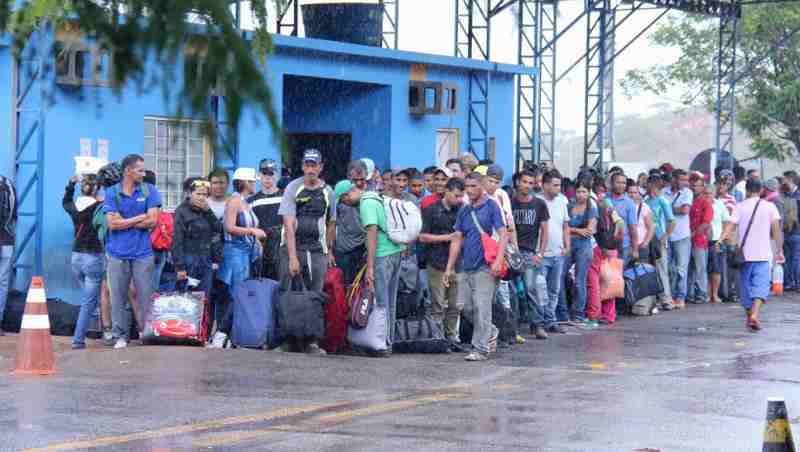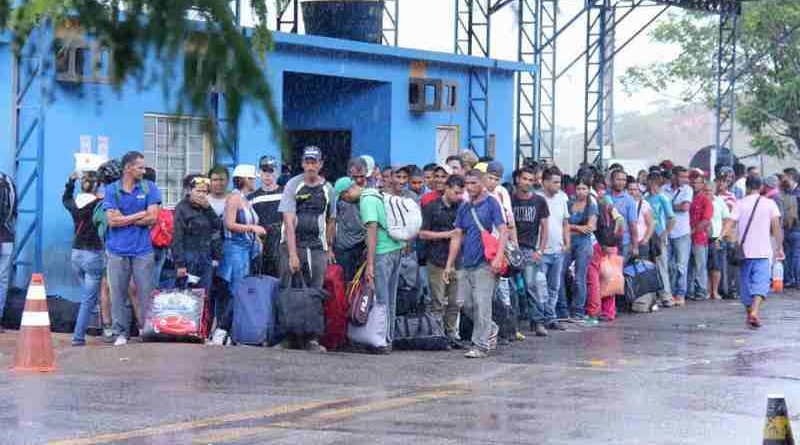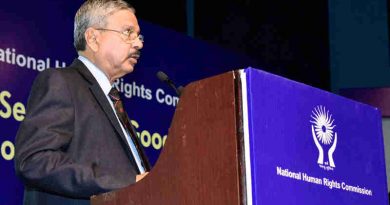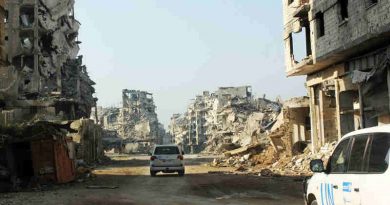Venezuela Urged to Stop Grave Human Rights Violations

A UN human rights report published on Thursday (July 4) urges the Government of Venezuela to take immediate, concrete measures to halt and remedy the grave violations of economic, social, civil, political and cultural rights documented in the country.
The report by the Office of the UN High Commissioner for Human Rights warns that if the situation does not improve, the unprecedented outflow of Venezuelan migrants and refugees will continue, and the living conditions of those who remain will worsen.
The report, mandated by the UN Human Rights Council, states that over the last decade – and especially since 2016 – the Government and its institutions have implemented a strategy “aimed at neutralizing, repressing and criminalizing political opponents and people critical of the Government.”
A series of laws, policies and practices has restricted the democratic space, dismantled institutional checks and balances, and allowed patterns of grave violations. The report also highlights the impact of the deepening economic crisis that has left people without the means to fulfill their fundamental rights to food and health, among others.
Based on 558 interviews with victims and witnesses of human rights violations and the deteriorating economic situation, in Venezuela and eight other countries, as well as other sources, the report covers the period from January 2018 to May 2019.
The UN High Commissioner for Human Rights Michelle Bachelet was able to visit the country from 19 to 21 June to meet a wide range of actors, including President Nicolas Maduro, other senior Government officials, the President of the National Assembly, civil society, business representatives, academics and other stakeholders, as well as victims and their families.
A team of two UN human rights officers remained in the country after her visit, with an agreed mandate to provide technical assistance and advice, and to monitor the human rights situation.
“During my visit to Venezuela, I was able to hear first-hand the accounts of victims of State violence and their demands for justice. I have faithfully conveyed their voices, and those of civil society, as well as the human rights violations documented in this report, to the relevant authorities,” High Commissioner Bachelet said.
The report details how State institutions have been steadily militarized over the past decade. During the reporting period, civil and military forces have allegedly been responsible for arbitrary detentions; ill-treatment and torture of people critical of the Government and their relatives; sexual and gender-based violence in detention and during visits; and excessive use of force during demonstrations.
Pro-government armed civilian groups, known as colectivos, have contributed to the deteriorating situation by exercising social control and helping repress demonstrations. The UN Human Rights Office has documented 66 deaths during protests between January and May 2019, 52 attributable to Government security forces or colectivos.
The report also notes that as of 31 May 2019, 793 people remained arbitrarily deprived of their liberty, including 58 women, and that so far this year, 22 deputies of the National Assembly, including its President, have been stripped of their parliamentary immunity.
The report sets out a series of recommendations for the Government on the key human rights violations documented by the UN Human Rights Office.




